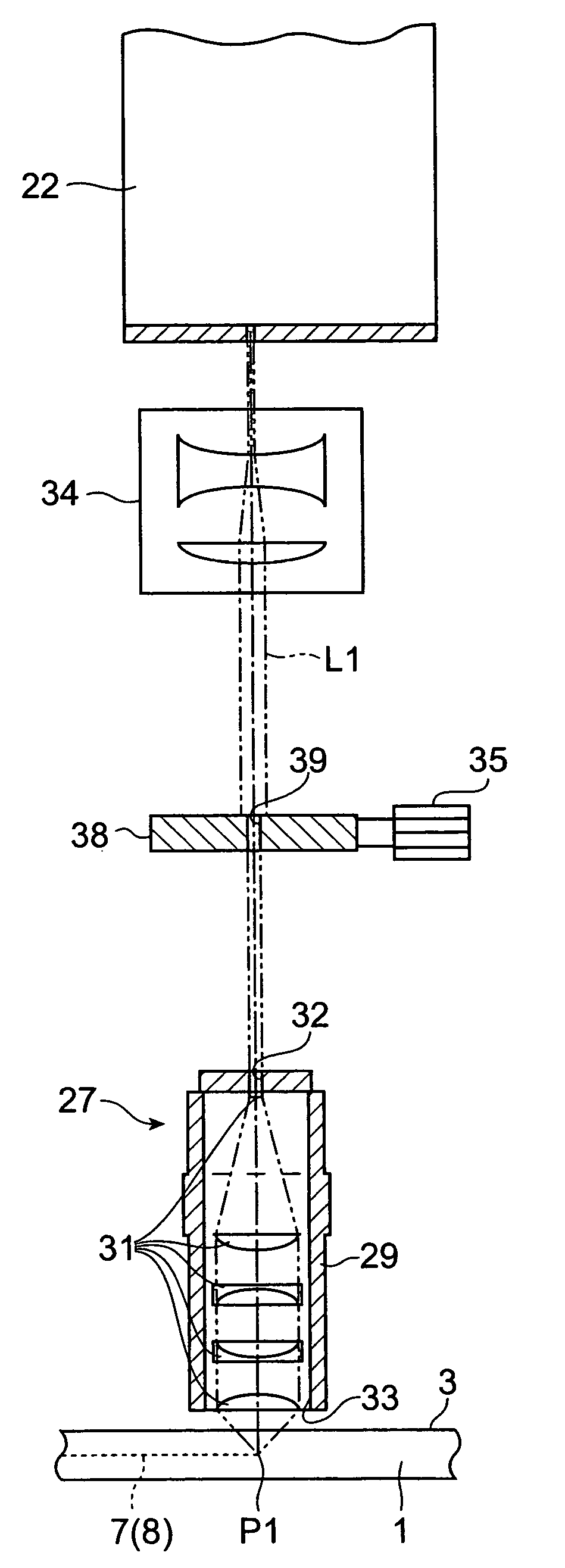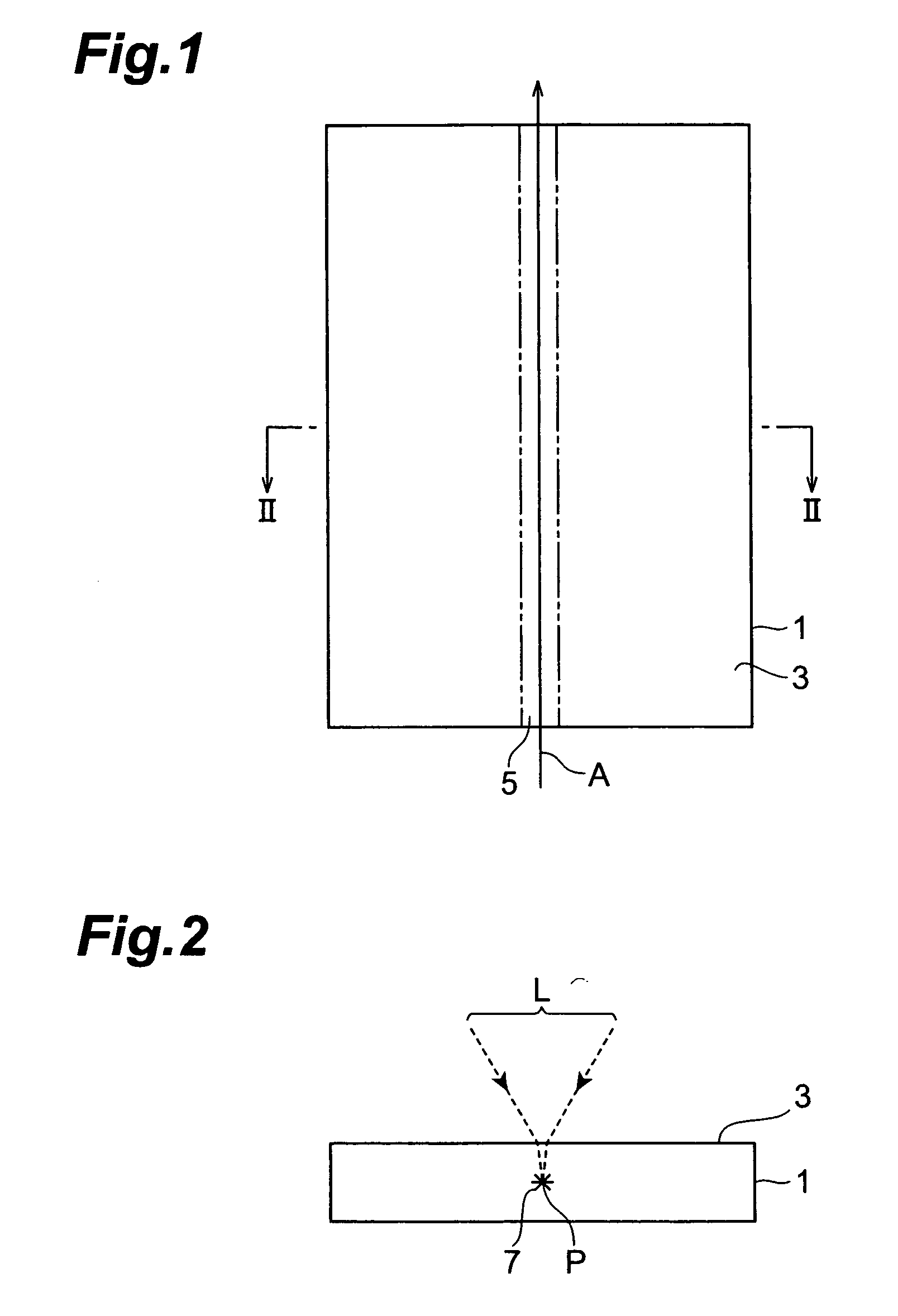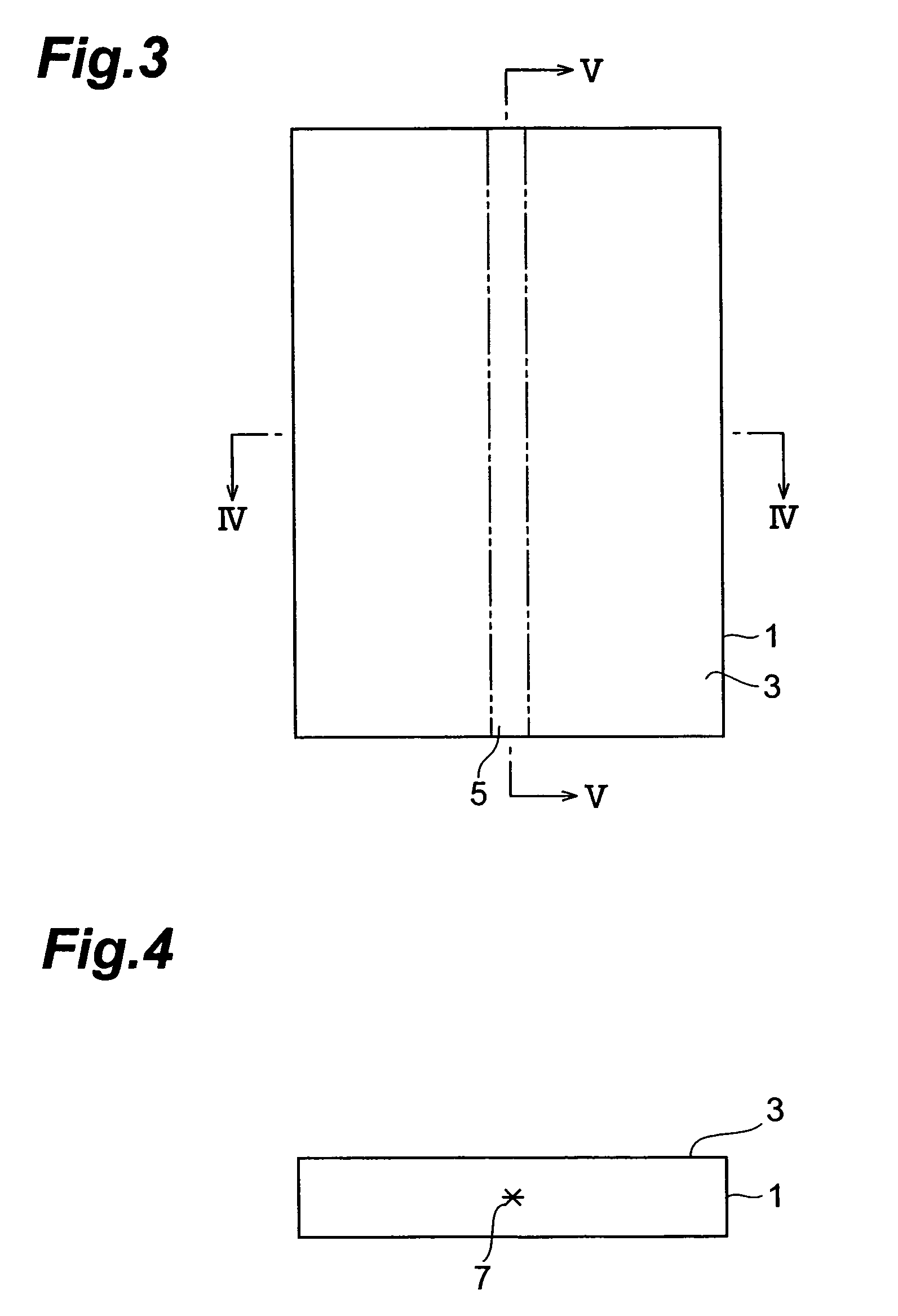Laser processing device
a technology of laser processing and laser processing, which is applied in the direction of manufacturing tools, instruments, optical elements, etc., can solve problems such as the change of the light-converging point position
- Summary
- Abstract
- Description
- Claims
- Application Information
AI Technical Summary
Benefits of technology
Problems solved by technology
Method used
Image
Examples
Embodiment Construction
[0031]In the following, a preferred embodiment of the laser processing apparatus in accordance with the present invention will be explained in detail with reference to the drawings.
[0032]The laser processing apparatus in accordance with this embodiment irradiates a wafer-like object to be processed while locating a light-converging point within the object, so as to form a modified region by multiphoton absorption within the object. Therefore, before explaining the laser processing apparatus in accordance with this embodiment, the forming of a modified region by the multiphoton absorption will be explained.
[0033]A material becomes transparent when its absorption bandgap EG is greater than photon energy hv. Hence, a condition under which absorption occurs in the material is hv>EG. However, even when optically transparent, the material generates absorption under a condition of nhv>EG (where n=2, 3, 4, . . . ) if the intensity of laser light becomes very high. This phenomenon is known a...
PUM
| Property | Measurement | Unit |
|---|---|---|
| thickness | aaaaa | aaaaa |
| size | aaaaa | aaaaa |
| thickness | aaaaa | aaaaa |
Abstract
Description
Claims
Application Information
 Login to View More
Login to View More - R&D
- Intellectual Property
- Life Sciences
- Materials
- Tech Scout
- Unparalleled Data Quality
- Higher Quality Content
- 60% Fewer Hallucinations
Browse by: Latest US Patents, China's latest patents, Technical Efficacy Thesaurus, Application Domain, Technology Topic, Popular Technical Reports.
© 2025 PatSnap. All rights reserved.Legal|Privacy policy|Modern Slavery Act Transparency Statement|Sitemap|About US| Contact US: help@patsnap.com



